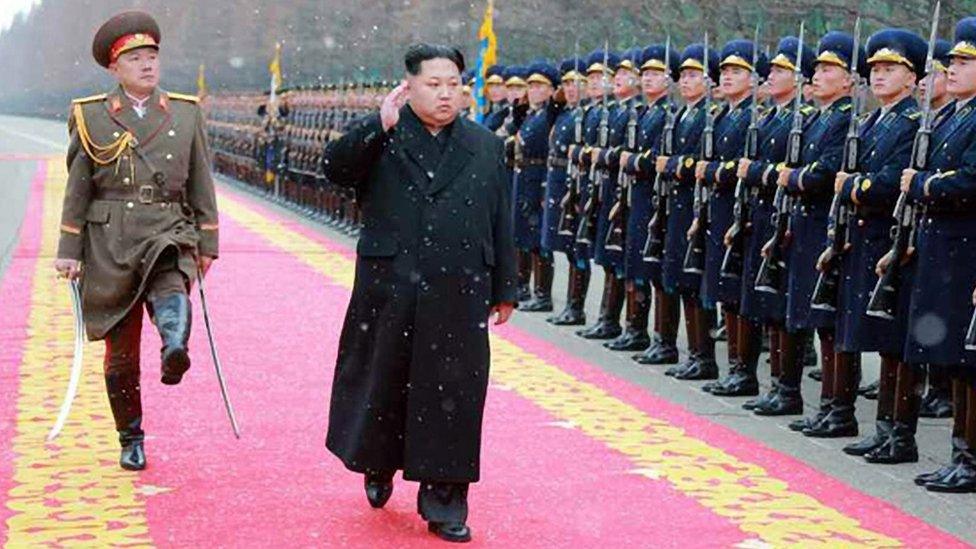US flies B-52 bomber over South Korea amid North tensions
- Published
The B-52 bomber was flanked by US and South Korean fighter jets
The US has flown a B-52 bomber over South Korea in a show of force after North Korea said it successfully tested a hydrogen bomb.
The B-52 flew low over an air base close to the North-South border.
Pyongyang said it detonated an underground device on Wednesday, to widespread condemnation, but experts remain sceptical about the claim.
North Korean leader Kim Jong-un said the test was an act of self-defence to prevent nuclear war with the US.
"It is the legitimate right of a sovereign state and a fair action that nobody can criticise," he was quoted by North Korean state media as saying.

North Korean leader Kim Jong-un defended the test as self-defence
Following the test, South Korea resumed broadcasting propaganda from speakers mounted on the border and the North countered with similar broadcasts.
The two sides are technically still at war, with the civil conflict that ended in 1953 concluding in a truce rather than a peace treaty.
The US is an ally of the South and said the B-52's flight was a response "to recent provocative action by North Korea".
Lt Gen Terrence O'Shaughnessy said the US was "steadfast" in its commitment to defending South Korea, and that includes "extended deterrence provided by our conventional forces and our nuclear umbrella".
"It's like a dump truck - nothing else has that type of range and capacity"
Washington is considering sending an aircraft carrier to the region, Yonhap reported, external.
There has been no response yet from North Korea to the B-52's flight.
It may take weeks to confirm North Korea's claims to have tested a hydrogen bomb, but several experts said the blast was not large enough to have been from such a device.
The test angered North Korea's main ally China and the UN is working on new measures against Pyongyang, already internationally isolated from previous nuclear tests.